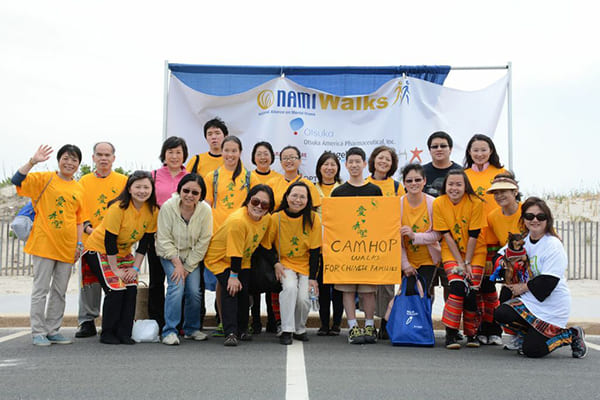By Grace Travinsky

Twelve years ago as I was sitting in my office I received a phone call from my daughter Tanya, who was at the time was a senior at UCLA. I was surprised by the midday phone call from my daughter. "Hi Mom,” she said. “My psychiatrist wants to speak with you."
Tanya handed the phone to the doctor. I didn’t know what to expect; I didn’t even know Tanya had been seeing a psychiatrist. that the doctor told me that she had been seeing Tanya for over six months.
That Tanya was going to withdraw from school and come home for treatment.
That Tanya had been diagnosed with schizophrenia.
My eyes stared blankly at the wall on the far side of my office and a dull hum began to flood my head. Eventually I was able to muster a question: “Will Tanya be able to finish her last quarter and graduate?” Bright, happy, loving, inquisitive and creative—that’s how I would describe Tanya as a child. She was driven and pushed the boundaries whenever she could. Tanya's kindergarten teacher once told me that Tanya was the most self-confident child she had ever taught.
By high school, Tanya was confident and self-sufficient. She was an accomplished musician, state-level track and field athlete, homecoming princess and who also excelled academically with an active social life. I was a proud mother imagining a future female Bill Gates in the making. Then out of the blue came that dreadful phone call from nearly 3,000 miles away and from a reality that seemed even further.
In the dozen years since, Tanya’s life has taken dramatic turns and challenges. Her personal relationships have suffered as she has found it hard to maintain connections. Her psychotropic meds would work for a while but then seem to suddenly stop. Her weight would yoyo up and down and she developed type II diabetes and stage IV thyroid cancer—all consequences of those medicine cocktails.
She lived at home with me in San Francisco, with her father in Texas, then back with me in New York, then in supportive housing communities, and is now living with her boyfriend in the Bronx. These events all occurred in conjunction with about 10 psychiatric hospitalizations, which lasted as little as two weeks to as long as eight months. But through all of these challenges she has found strength. Despite the indifference her first primary care doctor which led to a delayed diagnosis of her thyroid cancer until it was stage IV, Tanya was able to complete her undergraduate study online and is now preparing to enter graduate school. She has continued to fight back thyroid cancer.
The support she has received from a group of caring and compassionate professionals including her psychiatrists, psychologists, social workers, resident counselors, primary doctor, and other doctors has truly made the difference. Without them Tanya would not be here today.
At the same time as Tanya was bravely facing the challenges associated with schizophrenia, we felt lost, helpless, and frustrated. It wasn’t until Tanya’s therapist in San Francisco mentioned a group called NAMI that it seemed like there was somewhere to turn. But my hectic work schedule didn’t grant me and our family time to attend the support groups or classes. But when we landed in New York City in 2005, we walked right into the NAMI NYC Metro. From that day on, we have been involved in a relationship that has continued to grow and positively influence each of our lives.
My older daughter Nina and I took a NAMI Family-To-Family class, joined family support groups, and attended various seminars so we could learn all we could to help Tanya. We realized that to care for and to support a family member with mental illness defies conventional wisdom; we learned how to better communicate with Tanya without adding additional stress; we learned how to spend happy and relaxing time with Tanya without conflict; we learned how to best work with Tanya's treatment team for her recovery. But most of all, we learned the importance of taking care of ourselves so that we could be around to provide the necessary love and support for Tanya.
Twelve years later we are here with lots of regrets and triumphs. It's difficult to think about what life could have been. But what is important is that Tanya and we, her family, have faced the challenges, and have survived. We have emerged a stronger unit. Once left unable to speak, I now offer words of optimism and hope. I share Tanya’s story, I share my story, and I share our story to show that even if you feel like the sun will never rise, there are places and people that can provide you ray of light in the dark until the sun returns. And with the rapid advancement in genetic research, I am hopeful that more effective therapies—or even cures—are on the horizon too.
NAMI HelpLine is available M-F, 10 a.m. – 10 p.m. ET. Call 800-950-6264,
text “helpline” to 62640, or chat online. In a crisis, call or text 988 (24/7).